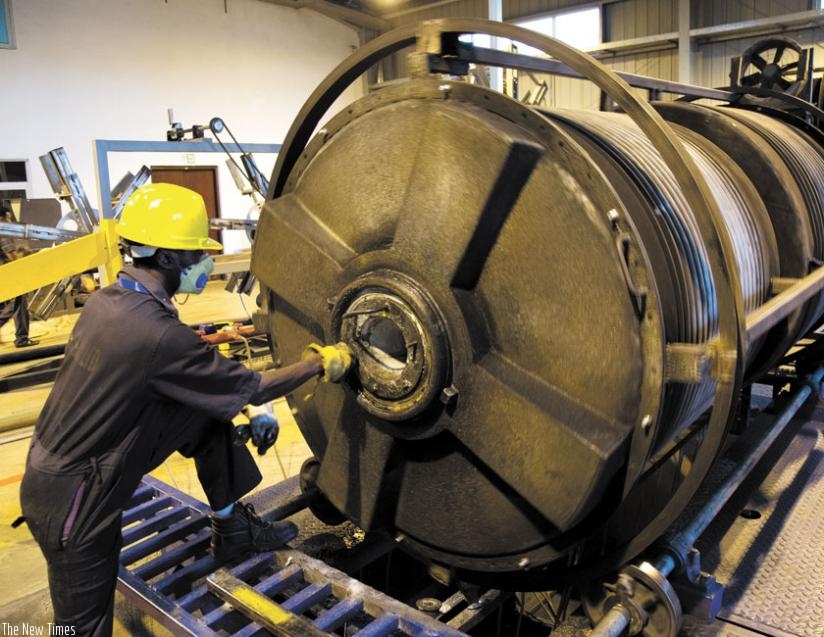Manufacturers have decried the way tax incentives offered by the Rwanda Development Board are being implemented by the Rwanda Revenue Authority (RRA).


Manufacturers have decried the way tax incentives offered by the Rwanda Development Board are being implemented by the Rwanda Revenue Authority (RRA).
The Rwanda Association of Manufacturers (RAM) and industrialists says though they are given some tax incentives when registering their businesses, RRA disregards this and instead accuses them of evading the exempted taxes.
Speaking during a meeting between manufacturers, RDB and the tax body, Sachir Bhatnagar from SRB Investments, a paper bag-making company, said they were given a waiver on import duty of goods they use as raw materials when they were registering the company in 2010, but were later informed by RRA to pay the taxes.
"The incentive was implemented by RDB after studying and certifying our documents for 2011, 2012 and 2013, in the presence of a delegate from RRA. However, last year we were informed that the incentive had not yet been gazetted and we paid the import taxes,” he told the meeting attended by Richard Tusabe, the RRA Commissioner General, at the Kigali Special Economic Zone on Wednesday.
Bhatnagar said though the incentive was finally published in the national gazette in July last year, they were audited by RRA and asked to pay Rwf194 million in import duties for 2011, 2012 and 2013 retrospectively, he said is not fair.
Sandeep Phandis, the head of business at Safintra, a steel maker, urged the government to correct inconsistencies in the system, and clarify on the tax incentives given to different investors. Otherwise, ‘benefitting’ firms risk being penalised for tax evasion, he added.
"Recently, we were trying to get a quotation for a facility we are constructing; RDB indicated a 10 per cent tax, while RRA officials put it at 25 per cent. So, these small issues should be rectified because they cost us a lot in the long-run,” he said.
The manufacturers noted that though there are many incentives for investors like them, the implementation is poor.
Commenting on the issues raised by the industrialists, Tusabe said the tax body was reviewing the list of tax-exempt and zero-rated items.
He added that the disparities highlighted by the producers could have been due to some gaps on RRA’s side in solving the challenges.
Tusabe noted that there should not be any inconsistencies between RRA and RDB quotations.
He urged the RAM members to always share their inputs during policy-making processes like informing which imports should be considered as raw materials before laws are gazetted.
Norbert Muhizi, the exports division manager at RDB, however, dismissed the industrialists reported contradictions between what RDB promises investors and what is actually administered by RRA.
"The problem could be in the interpretation by the beneficiaries. What many of RAM members referred to here are exemptions on import duties for imported factory inputs,” he explained.
He advised manufacturers to always refer to the tax code to find out which raw materials are duty free to ensure that the goods they are importing are eligible for the tax exemption as per the East African Community (EAC) Customs Act.
"Some investors think that whatever is used in manufacturing should be interpreted as a raw material; this is not necessarily true,” he said.
He, however, noted that imported raw materials that are not in the tax code can be added during review of the list by the EAC secretariat and stakeholders.
business@newtimes.co.rw


